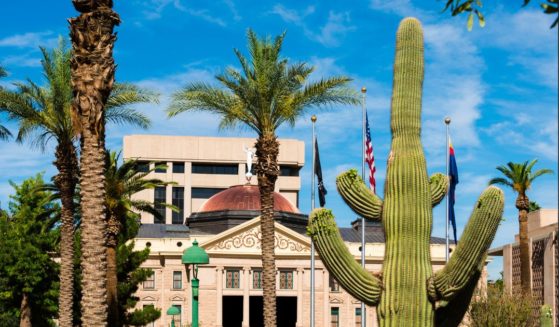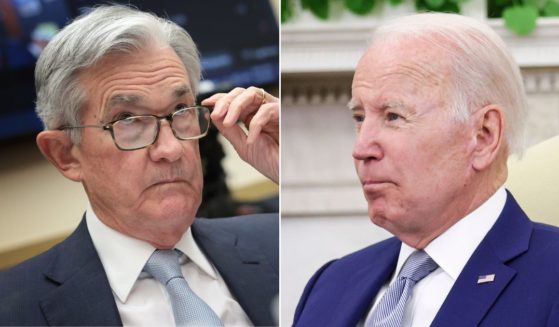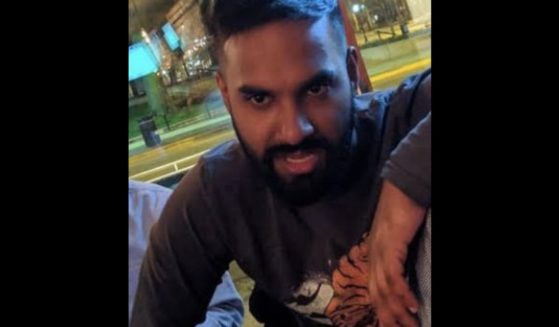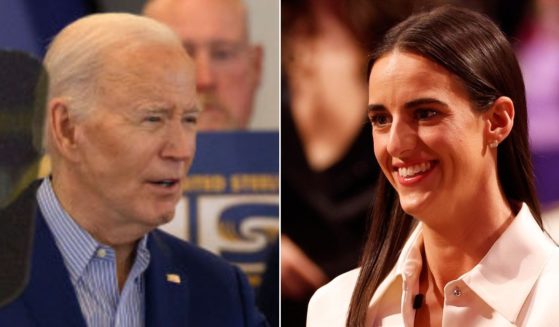Sen. Cruz Comes Out in Support of Plan To Save Supreme Court from Being Packed
Democrats are furious that President Trump may get a third nominee confirmed to the Supreme Court during his first term as president.
In response to the very real threat that Ruth Bader Ginsburg’s replacement could be a pro-life conservative, many on the left are talking about packing the Supreme Court with additional justices if Joe Biden wins next month’s election.
Not Biden or his running mate Kamala Harris, mind you — both of them have refused to answer whether they support court-packing.
Republican Sen. Ted Cruz of Texas, on the other hand, supports a plan that would protect the Supreme Court and freeze the number of justices at nine: a constitutional amendment.
“I think that’s a good idea. The number of justices is not set in the Constitution. It’s set by Congress,” Cruz told the Washington Examiner.
“We’ve had the number nine for 150 years. It is a number that works well, that provides stability and helps insulate the court from being overly politicized.”
Cruz also said he would support a legislative effort to freeze the number of Supreme Court justices.
This isn’t a bad idea. The judiciary is supposed to provide a check on the other two branches. In Federalist Paper No. 78, Alexander Hamilton wrote that the judiciary should be the weakest branch, merely providing judgment and relying on the executive and legislative branches to uphold its judgments.
In recent decades, however, the Supreme Court (as well as lower courts across the country) has become an activist court, where judges often inject their own ideologies to legislate from the bench.
The left is OK with that, as long as those legislations are their own ideologies.
If Amy Coney Barrett, Trump’s nominee to replace Ginsburg, is confirmed to the Supreme Court, six of the nine sitting justices will have been nominated by Republican presidents.
The left finds that unacceptable, so they are advocating for expanding the Supreme Court in order to put enough left-leaning justices on it to ram their preferred policies through.
The number of Supreme Court justices is set by Congress, not the Constitution, and there were originally six justices.
Since 1869, however, there have been nine justices on the highest court.
In 1937, President Franklin Roosevelt tried to pass legislation to increase the number of Supreme Court justices to 15 by allowing the president to appoint an additional justice (up to six) for every justice over the age of 70 years and 6 months. Congress did not approve of Roosevelt’s plan.
Now, the left has revived the idea of packing the court. Cruz noted that the odds are high Democrats will vote to pack the Supreme Court if Biden wins the presidency.
This could create a slippery slope: If the left wins and decides to pack the court simply so that they can enjoy an ideological majority on the Supreme Court, what would stop the right from further packing the court next time they are in power?
Fixing the number of justices on the high court, either through legislation or a constitutional amendment, could help to depoliticize the court.
Of course, it takes a two-thirds vote in both the Senate and the House of Representatives (or a constitutional convention) and ratification by three-quarters of the states to enact a constitutional amendment.
That’s a high bar, especially when the two major political parties are so ideologically divided.
If the left is so willing to grab power by any means possible, it is incumbent on the right — indeed, on any well-intentioned politician — to establish further safeguards to protect our institutions.
Truth and Accuracy
We are committed to truth and accuracy in all of our journalism. Read our editorial standards.












